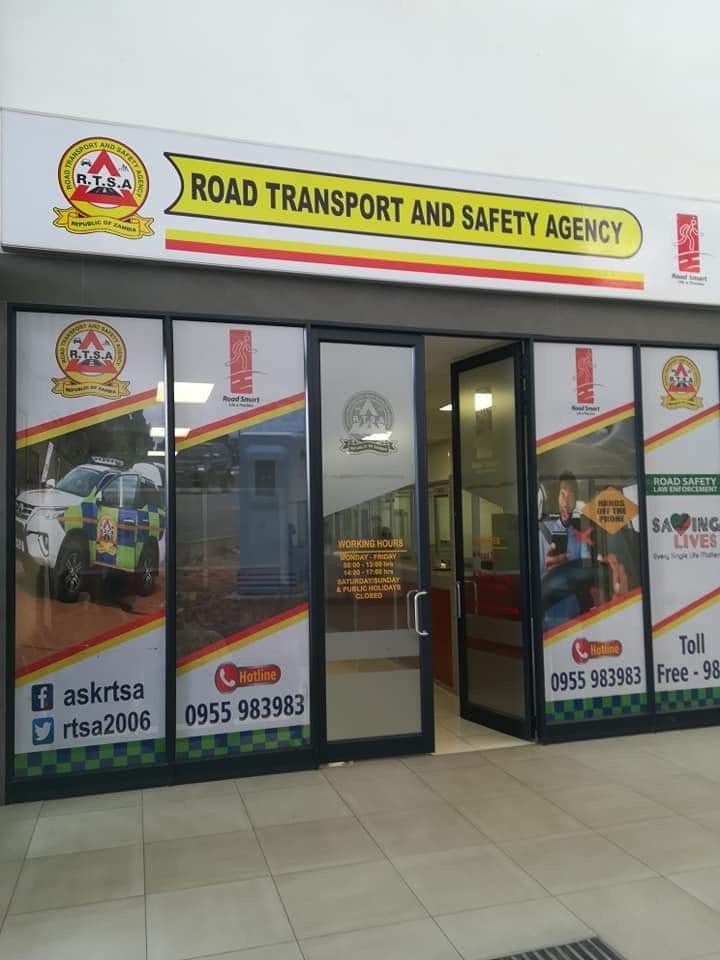
The Road Transport and Safety Agency – RTSA together with local councils have been accused of lamentably failing to regulate and ensure smooth and safe operation of the taxicab sub-sector in Zambia. A check in major cities and towns across Zambia shows that unauthorized [pirate] taxis are the order of the day.
This failure by RTSA and respective city and town councils is not only compromising the safety of passengers in Zambia, but losing the government million of Kwacha in revenue. The failure to regulate the sub-sector has further led to registered taxi operators and law abiding taxi businesses abandoning to have their vehicles registered as their is no benefit in doing so due to lack of regulatory endorsements.
The Roads and Road traffic act clearly states that taxis should also be metered to ensure transparency in charges for members of the public but this is not followed up, leading to an opaque pricing structure and exploitation of unsuspecting members of the public.
And the Bus and Taxi Owners Association of Zambia has expressed concern over the overwhelming number of pirate taxis that are operating in the country and has asked RTSA, the local government ministry and various local authorities such as city and town councils to ensure the existing laws are enforced.
Association Spokesperson Amis Daudi said there is a law that prevents the pirating of taxis but the regulators have been reluctant in doing their job thereby leading to the increase of the vice. The laws are there and it’s the reluctance to enforce the regulations.
In an exclusive interview with the Zambian Business Times – ZBT, Daudi said the authorities are aware of what the law says about this act and what should be done when it is violated but have chosen not to take any action.
Daudi said there are measures including fines that can be used to regulate and end this vice and what is needed is for the authorities to enforce the law adding that government also loses income.
“If you are caught pirating three times, there is a provision that your vehicle will be forfeited by the state, all those rules are there, so it is just the will to enforce the law”, he said.
He said that it is unfortunate that the authorities know who the drivers operating pirate taxis are and where to find them but have decided to pay a blind eye to the situation. Some pirate taxis have even created their own taxi ranks which are disadvantaging the registered ones.
“As taxi operators, we have tried to team up with authorities so we can manage the scourge but it has grown to such a level where the local authorities, the police and RTSA have failed because it is overwhelming”, he said.
He also said the association has been talking to the authorities who are supposed to regulate these taxis for over ten years but nothing has been done about it adding that the authorities do take action for a while, but stop after a short time.
“The unfortunate part is that they run to politicians and give reasons to justify what they are doing which is not supposed to be the case, we have a situation where some members of parliament have bought vehicles and given to people who are operating without following the regulations”, he said.
He stressed that all businesses are supposed to be regulated and what is been experienced in the taxi business is lawlessness which will affect lawful governance, adding that it brings anarchy as people think they can do whatever they want, therefore laws must be applied equally and consistently.
He said the pirate taxis have not registered their vehicles because they are running from tax obligations, adding that this takes away the business of legitimate taxi owners and distorts their market.
“When you don’t register, ZRA won’t come after you because you won’t be requiring a license to run on the road the following day, so you are running freely, no obligations to the government or the local authority and unfortunately to the passengers too”, he said.
He added that legitimate operators are operating under strict rules where the vehicle has to be tested every three months and ensure that they pay for all the necessary documents required for one to run this business.
“This takes away the motivation for people to be compliant with the law because if my neighbour can just get into the vehicle, pick passengers and operate, why should I be registering my vehicle and begin to have all these tax obligations”, he said.
He also said that the laws and regulations are in place to impound and stop pirate taxis from operating illegally therefore the authorities must come in and do their job.
Some of the crimes have been conducted from these unregistered vehicles operating as pirate taxis, which would have been avoided if this sector was properly regulated. Registered taxis contribute to the revenue base for the country and its high time the country starts to put this sector in order.









